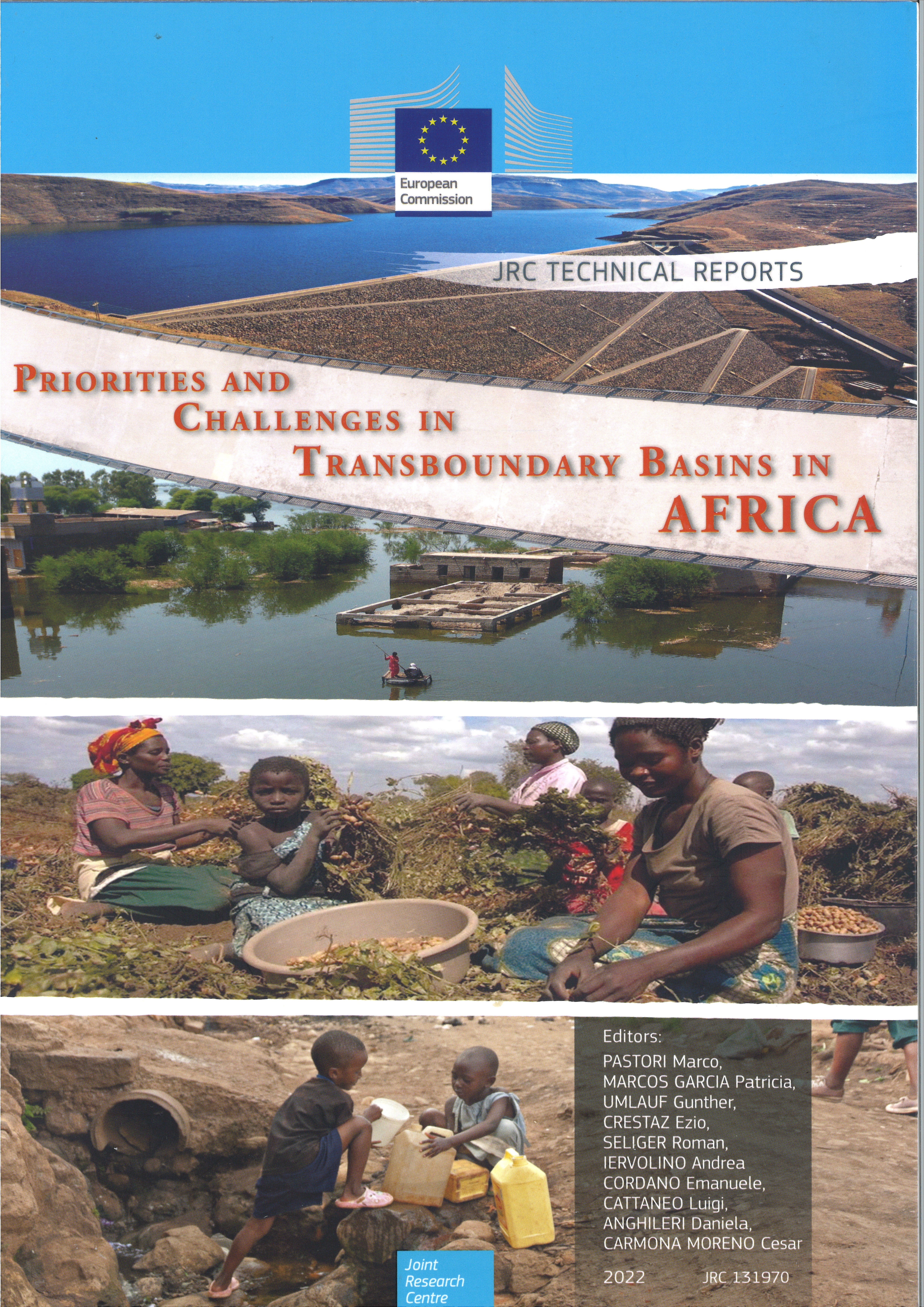| Attachment | Size |
|---|---|
| JRC TECHNICAL REPORTS 2022WEB.pdf(18.23 MB) | 18.23 MB |

African ambitions for growth and transformation, as envisioned in the African Union Agenda 2063, depend largely on ensuring water security due to the influence of water access and use on the overall economic output. Besides, the Africa Water Vision 2025 recognizes the necessity of improving water wisdom to fulfil the aspiration of a prosperous Africa, based on inclusive growth and sustainable development Policy context. In addition, water and natural resource management is under increasing pressure, due to a number of factors including climate change, population and economic growth, political instability and increased competition for increasingly limited resources in a context of global economy. Where resources are shared by several countries, as in the case of transboundary rivers, the management of these risks poses additional challenges, and the likelihood of a non-optimal or poor management is likely to critically affect the socio-economic conditions of the actors and countries involved. This could even lead to intra-basin tensions, jeopardising transboundary and inter-sectoral cooperation. In this respect, sub-optimal or poor management is likely to critically affect the socio-economic conditions of the actors and countries involved. This could even lead to intra-basin conflicts. Identifying appropriate and timely adaptation measures in this changing environment is one of the greatest challenges for development and cooperation. The European Union, through the activities implemented by DG INTPA and JRC, in collaboration with its African partners (AMCOW, AMCOST, AUDA-NEPAD Centres of Excellence in Water Sciences, Regional Economic Committees and African River Basin Organisations) and Member States, has demonstrated to the international scientific and policy communities the importance of establishing forums for dialogue. They provide an opportunity to discuss and address the main regional threats, the identification of priority strategies and opportunities for current and future cooperation, as well as the need to develop pertinent and adapted human capacity programmes, develop and analyse data and information to support integrated management and policy decisions, particularly in transboundary basins, and to address the importance of sharing and maintaining information that affects the riparian countries. To this scope, this preliminary report aims to provide a first-level assessment based on currently available knowledge, data and information for a selected set of African transboundary river basins (selected by DG INTPA). The focus is on water resources, not because of its dominance over other sectors, but because it is a cross-cutting resource shared by different sectors and a key driver of development in Africa. It should be clear that for this assessment, it is essential to develop a common and agreed knowledge base supported by objective and open data and information, in order to facilitate agreement and convergence of different sectoral policies.